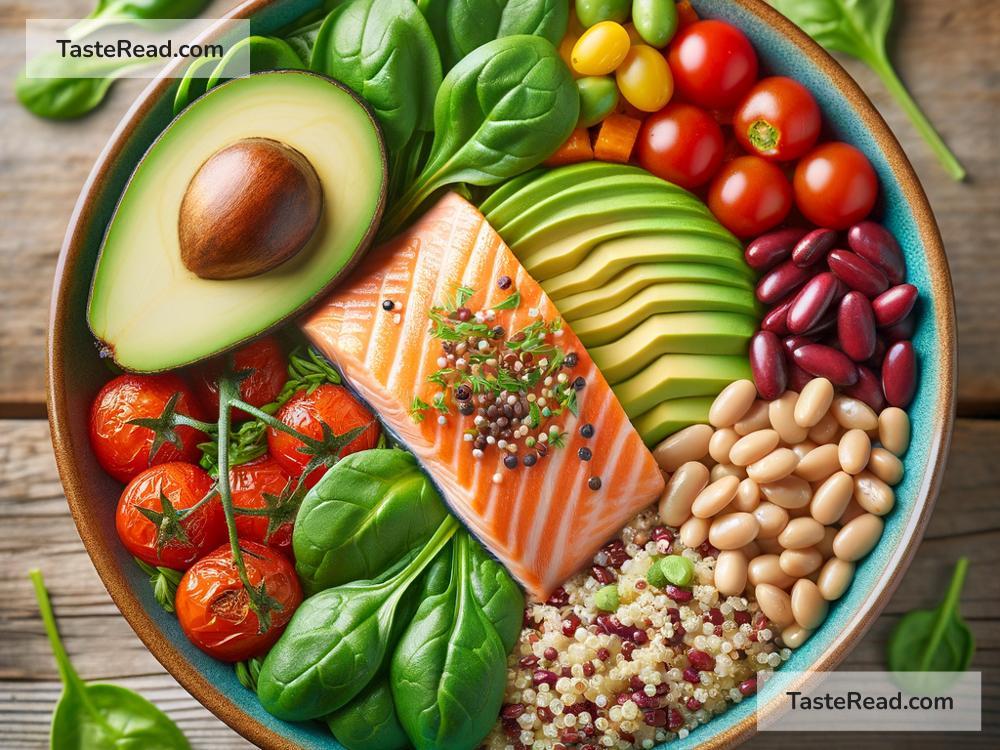The Benefits of a Balanced Diet for Cardiovascular Health: Supporting Circulatory Function
Your heart works hard every day, pumping blood to every part of your body through an incredible network called the circulatory system. To keep this system running smoothly, it’s important to take care of your cardiovascular health. One of the best ways to do that is by eating a balanced diet. Let’s explore how what you eat can support your heart and overall circulatory function.
What is Cardiovascular Health?
Cardiovascular health refers to the wellbeing of your heart, blood vessels, and circulatory system. These parts of your body work together to deliver oxygen and nutrients to your organs and tissues while removing waste products like carbon dioxide. When your circulatory system is healthy, your body functions properly. But when it’s not, you may face problems like high blood pressure, heart disease, or stroke.
The good news is that maintaining cardiovascular health often starts with small, manageable lifestyle changes—like how you eat. A balanced diet can protect your heart, improve blood flow, and support your overall wellbeing.
What is a Balanced Diet?
A balanced diet means eating a variety of foods that provide the nutrients your body needs. These include fruits, vegetables, whole grains, lean proteins, and healthy fats. It’s also important to limit foods with added sugars, unhealthy fats, and excess salt. Making smart choices about what we eat can have a lasting impact on our health, especially when it comes to supporting our heart and blood vessels.
How Does a Balanced Diet Help Your Circulatory System?
Here are some of the ways eating a balanced diet benefits your cardiovascular health:
1. Lowers Your Risk of Heart Disease
Heart disease happens when plaque builds up inside your arteries, making it harder for blood to flow. Eating more healthy foods like fruits, vegetables, and whole grains provides nutrients that reduce inflammation and prevent plaque buildup. For example, fiber from oats, beans, and whole grains helps lower cholesterol, which stops fatty deposits from clogging your arteries.
2. Supports Healthy Blood Pressure
High blood pressure, or hypertension, puts extra strain on your heart and vessels. Over time, this can lead to serious health issues like heart attack or stroke. A diet rich in potassium, found in bananas, spinach, and sweet potatoes, can help control blood pressure by balancing out the effects of sodium in your body. Limiting salty snacks, fried foods, and processed meals is also essential for healthy blood pressure.
3. Improves Blood Flow
Some foods help improve circulation by keeping your blood vessels flexible and free of blockages. For example, omega-3 fatty acids found in fish like salmon or in nuts like walnuts reduce inflammation and support smooth blood flow. Antioxidants in berries, dark chocolate, and green tea also protect your blood vessels from damage.
4. Helps Maintain a Healthy Weight
Carrying extra weight puts stress on your heart and circulatory system. It can lead to problems like high blood pressure and diabetes, which increase your risk of heart disease. A balanced diet filled with whole, nutrient-rich foods can help you feel full longer, making it easier to manage your weight without overindulging in unhealthy options.
5. Reduces Chronic Inflammation
Chronic inflammation in the body can damage blood vessels and lead to heart disease over time. Foods like olive oil, nuts, and vegetables are rich in anti-inflammatory compounds that help protect your cardiovascular system. Avoiding processed and fried foods, which promote inflammation, is just as important.
Key Foods You Should Include
If you want to improve your cardiovascular health, focus on adding these heart-friendly foods to your diet:
- Fruits and Vegetables: Eat colorful produce like berries, oranges, spinach, and broccoli for vitamins, minerals, and antioxidants.
- Whole Grains: Swap white bread and pasta for whole grains like brown rice, oatmeal, quinoa, and whole-grain bread.
- Healthy Fats: Include sources of unsaturated fats like avocados, nuts, seeds, and olive oil.
- Lean Proteins: Choose chicken, fish, beans, tofu, and lentils instead of fatty cuts of meat.
- Low-Fat Dairy: Enjoy yogurt, milk, and cheese with less saturated fat.
Tips for Building a Balanced Diet
Eating healthy doesn’t mean you need to overhaul your entire diet overnight. Small changes can make a big difference! Here are some tips:
- Start Slow: Begin by swapping one unhealthy snack for a healthier choice, like fresh fruit or nuts.
- Plan Your Meals: Prepare nutritious meals at home instead of relying on takeout or processed foods.
- Watch Your Portions: Eating too much—even healthy foods—can lead to weight gain, so stick to appropriate portion sizes.
- Stay Hydrated: Drink water throughout the day instead of sugary drinks like soda or juice.
Final Thoughts
Your diet directly impacts your cardiovascular health. A balanced diet can lower your risk of heart disease, improve blood pressure, boost circulation, and help you maintain a healthy weight. By choosing foods that nourish your body and avoiding harmful ones, you’re giving your heart the fuel it needs to stay strong and keep your circulatory system functioning at its best.
Remember, every small step counts. You don’t need to be perfect—you just need to start. Your heart will thank you for it! So, make that next meal a heart-healthy one and take a step toward a longer, healthier life.


